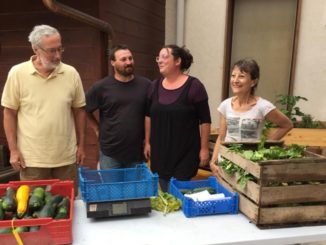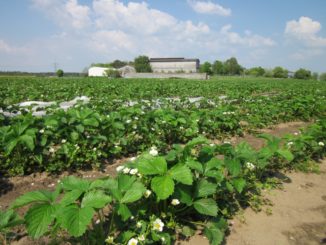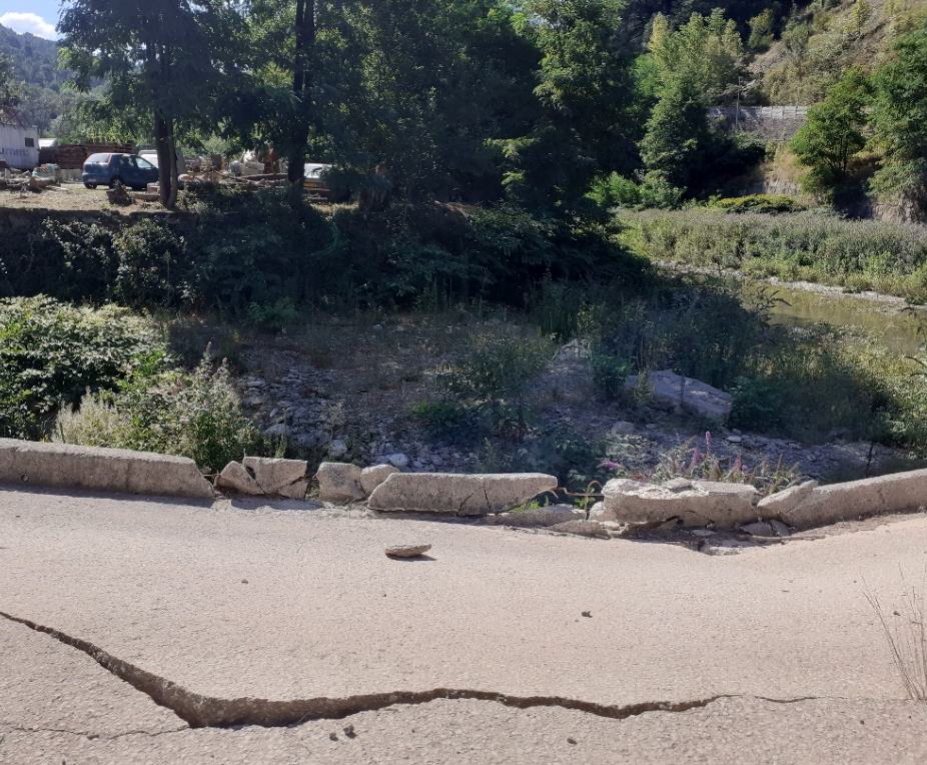
Launched at the end of 2020, the Rural Resilience project is now halfway through its second phase. The annual report 2023 is now available to download. Below you can read an excerpt: the editorial of the report. By Marie-Lise Breure-Montagne.
2023: Sixty years after the Elysée Treaty, a key moment in bringing France and Germany closer together
On January 22nd, 1963, German Chancellor Konrad ADENAUER and French President Charles DE GAULLE signed the Élysée Treaty. This agreement marked the reconciliation of the two countries, less than two decades after the Second World War, and strengthened the “Franco-German” couple, major players in the construction of Europe.
Sixty years later, within the ARC 2020 association dedicated to the Europe of rural and agricultural areas, it seemed appropriate to bring these two countries together again, in a European context where rural resilience is increasingly becoming a unifying compass.
Rural areas (and the people who make them live and evolve): the centre of gravity of the “Rural Resilience” project
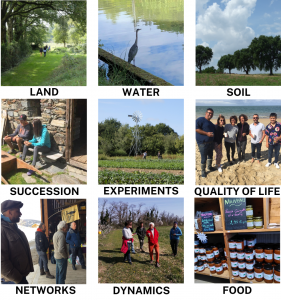
Fig. 1 : Public policy analyses for 2023 (phase 2):
-
- Access to agricultural land
-
Water, a common good; climate risks: collective destiny
-
Well-being in rural areas: Moving away from pesticides
-
Regional Nature Parks (+National Parks): islands of rural resilience
-
Democratising food policies (PAT in France / Food Council Policy in Germany)
While the first phase of the ‘Rural Resilience’ project identified issues shared by French rural and farming communities (fig. 1), phase 2 (2023-2024) involves going deeper into these areas of focus, with increasingly acute awareness of issues such as adaptation to climate change and territorial inequalities.
Local, regional and/or national partners continue to be mobilised to ensure that the project remains firmly rooted in the local ground. In addition, compared with phase 1, new areas (among the poorest: Hauts-de-France, Cévennes, Auvergne) have been visited to refine the questions and proposals, subject by subject.
Looking to our German neighbours remains an inexhaustible source of questions, so choices had to be made.
Multi-tiered rural public policies: a plunge into the administrative and political complexity of this decade’s strategic challenges
ARC 2020 has identified 5 areas of public policy where there is a strong need for coherence between levels of administration (from European to local) … often as a corollary of the shared competences between the EU and the Member States. This complexity is combined with the competences shared within each State: the so-called “territorial millefeuille”!
The choice and treatment of these five topics (see table above) are based on other contextual factors:
-
Subjects that are likely to be of concern to every European citizen (such as the right to local, healthy and accessible food and the territorial approaches to make it a reality: see analysis France | Democratising Food Policy – Tweaking The Financial Toolbox /Ernährungsrat: The democratic potential of Food Policy Councils in Germany and focus A).
-
Differences between France and Germany that are significant and inspiring for the rest of Europe (e.g. multi-risk climate insurance rates: analysis Water as a Common Good – Part 1 / Water as a Common Good .. and climate risks, a common destiny – Part 2/2), or conversely, unavoidable points in common:
-
The two biggest consumers of pesticides in the EU (analysis Beyond the Harvest: Health Effects of Pesticides on French Farmers / The True Toll of Pesticides on Rural Health – Pesticides Analysis Part 2)
-
The two countries that have the right of pre-emption in their national regulations (analysis Access to Land: Looking to Europe to Secure Local Farmland? Part 1 / Access to Land: More Resilient Agriculture – Without Any EU Legislation? (Part 2))
-
-
Last but not least, issues on the European parliamentary agenda for 2023: Sustainable Food System law (finally postponed), SUR regulation (finally rejected), Nature Restoration Law, etc., or high-profile proposals such as Via Campesina’s Land Directive.
Taking a look at Germany : France’s false twin
After the BREXIT, France and Germany, both members of the G8, become two heavyweights in the construction of Europe, grappling with yet another “maturity crisis“: how to translate the Green Deal into engaging and relevant texts? These two major countries alone represent a third of the population of the European Union (83 million Germans and 68 million French). Within these two profoundly different countries, one more rural (France), the other more urban and denser (Germany), the culture of political and public action is rooted in a specific territorial network, one run by centralising hands (France), the other characterised by federalism (Germany of the Landers). Some observers believe that since 2012 we have experienced a “winter of the Franco-German couple”, immobilised by economic and financial issues (including very different approaches to public deficits). What’s more, the Germans see themselves as “the winners of globalisation”. So many generalities that sidestep the issues of agriculture, rurality and transition!
Comparing them, on these judiciously chosen subjects, brings home the complexity of the “work still to be done” if Europe is to become “the largest territorial area on the planet in making a success of its agro-ecological transition” (intentions sometimes displayed and commented on the Brussels floor).
By publishing this annual “Rural Resilience” report (Phase 2 – 2023) in two EU languages (French/English), ARC 2020 is also helping to educate people about how Europe works (an ambition that has never been achieved, given the EU’s abundance of complexities), and about the (difficult but essential) links between European, national, regional and local policies.
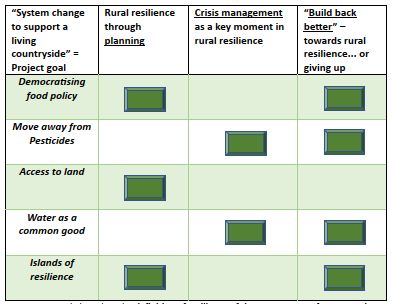
In addition to the 5 prescriptive analyses, 2 “focus” provide additional information to achieve our aim of providing the best possible information for Europe’s citizens, in line with their everyday life concerns and their values of civic involvement.
Finally, the conclusion provides a summary of the most cross-cutting proposals, despite the specific nature of each of the subjects covered (and of each of these two countries). Three key words stood out in the run-up to the European elections and were particularly striking: massification (of the agro-ecological transition) / subsidiarity between levels of administration / mobilisation (individual or collective) in territories (of survival) … so as not to forget the key players in rural resilience.
We hope you enjoy reading it!
Download the report: Rural Resilience project report 2023
>> Back to the Rural Resilience project page
More on Rural Resilience
Islands of Resilience Part 2: Land Planning and Biodiversity
Water as a Common Good .. and climate risks, a common destiny – Part 2/2
Access to Land: Looking to Europe to Secure Local Farmland? Part 1
Access to Land: More Resilient Agriculture – Without Any EU Legislation? (Part 2)
Beyond the Harvest: Health Effects of Pesticides on French Farmers
The True Toll of Pesticides on Rural Health – Pesticides Analysis Part 2
France | Democratising Food Policy – Tweaking The Financial Toolbox
Ernährungsrat: The democratic potential of Food Policy Councils in Germany




